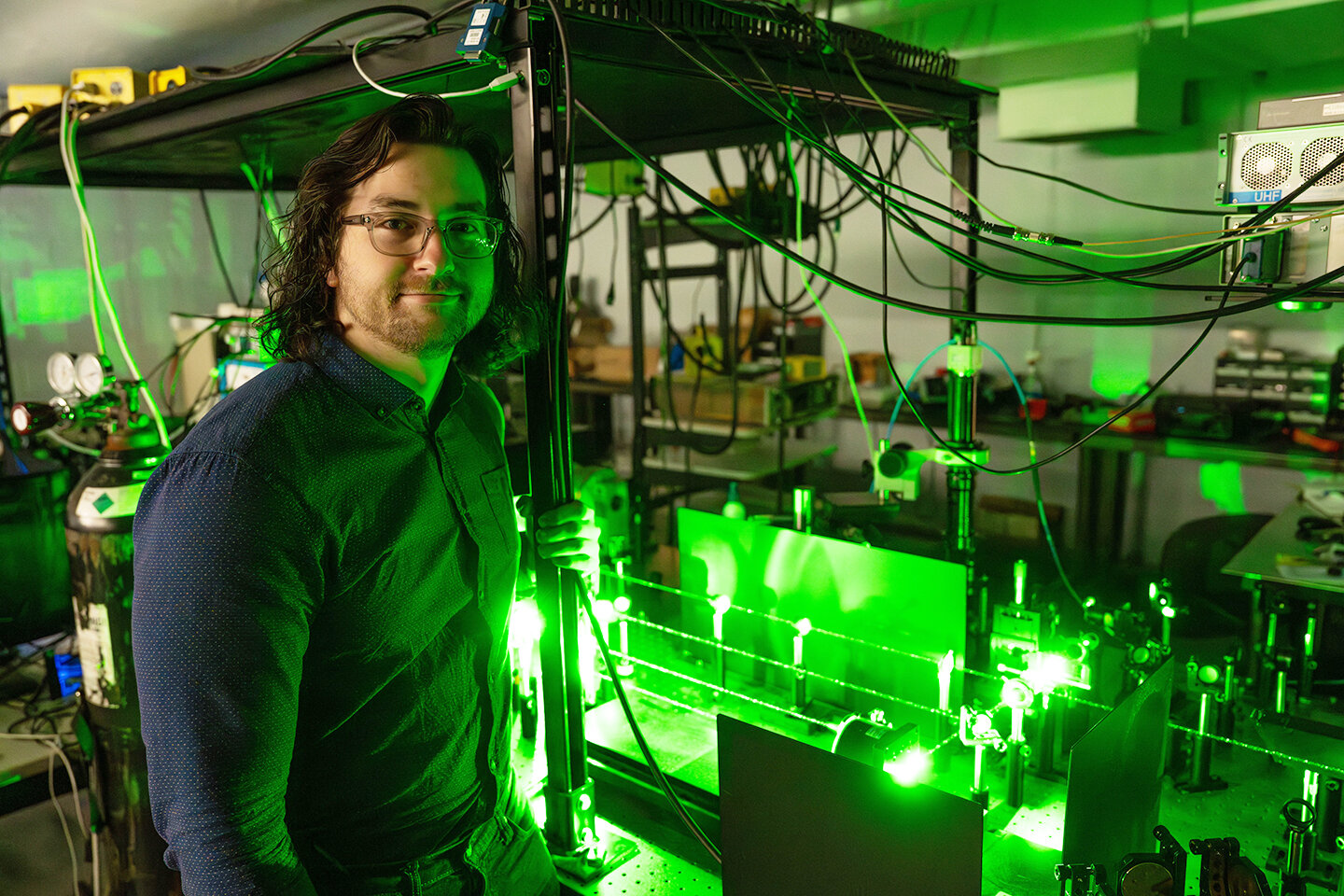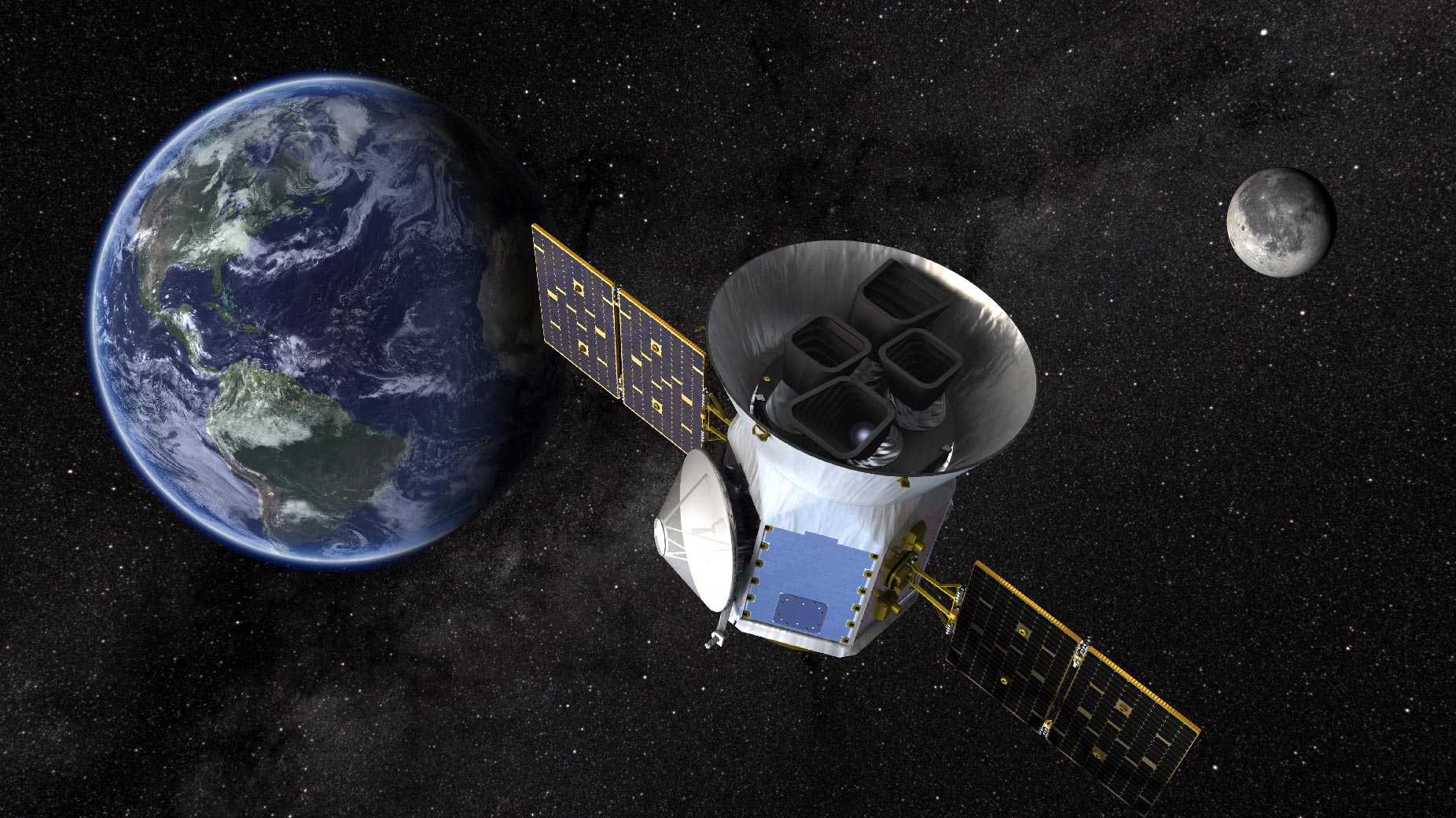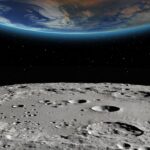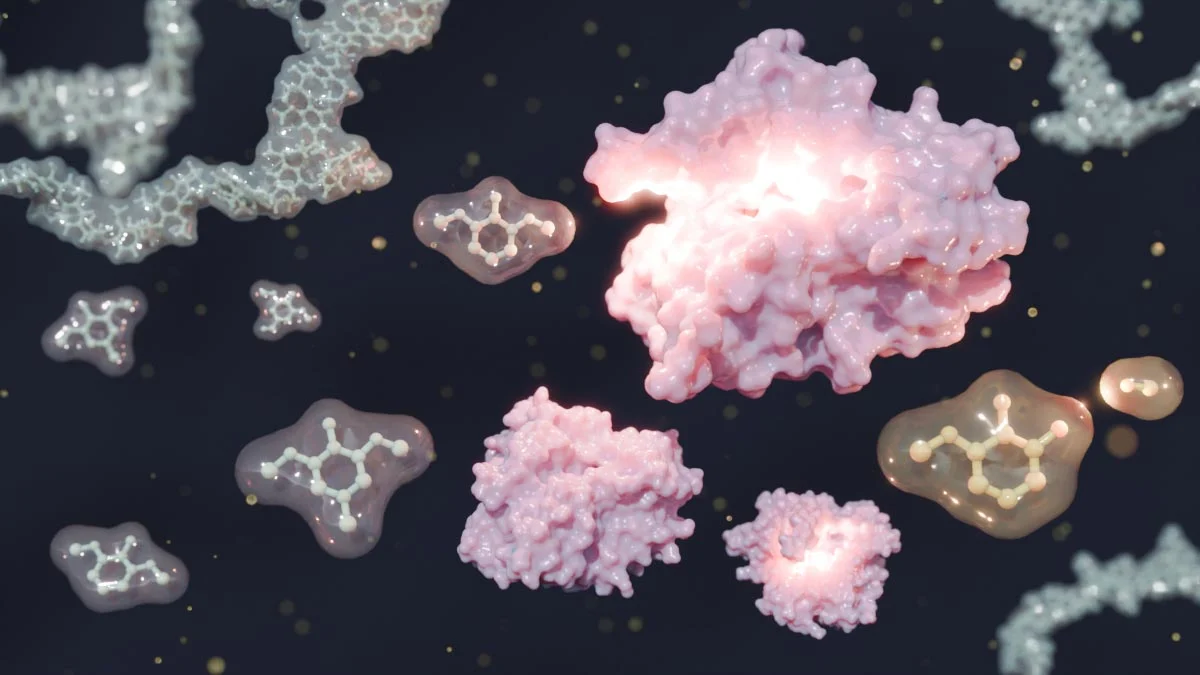Illustration of NASA’s Transiting Exoplanet Survey Satellite (TESS) at work. Credit: NASA’s Goddard Space Flight Center
Astronomers Discover Massive Exoplanet That Defies Cosmic Logic
Astronomers have uncovered a cosmic oddity: a gas giant planet, larger than Saturn, orbiting a star so small it challenges our current understanding of planetary formation. Named TOI-6894b, this alien world has left scientists scratching their heads — how can something so big orbit something so small?
When Big Meets Tiny: The TOI-6894 System
Meet the Star: TOI-6894
The star at the center of this mystery is TOI-6894, a red dwarf barely 20% the mass of our Sun. Red dwarfs are cool, dim, and typically host small, rocky planets — not gas giants.
The Planet: TOI-6894b
TOI-6894b is no ordinary exoplanet. Though slightly larger than Saturn in radius, it has only 56% of Saturn’s mass. Even more astonishingly, it completes an orbit around its tiny star in just over three days — hugging its host far closer than Mercury does the Sun.
Why This Discovery Breaks the Rules
Current planetary formation models suggest that small stars like TOI-6894 lack the disk mass to create gas giants. In other words, planets like TOI-6894b shouldn’t exist. Yet, here it is, boldly defying cosmic expectations.
This discovery forces scientists to rethink how planets form — especially around small stars. Could there be unknown processes or overlooked materials in these stars’ disks that allow for the birth of giants?
Next Steps: Peering Deeper Into the Mystery
Researchers now aim to use more advanced telescopes to analyze TOI-6894b’s atmosphere and orbital properties. These observations could unlock new clues about how such a massive planet could take shape in an unlikely environment.
What Else Is Out There?
The universe never ceases to surprise. TOI-6894b serves as a humbling reminder that we’ve only scratched the surface of planetary science. How many other “impossible” worlds are waiting to be discovered?
Stay tuned to DailySciTech.com for more awe-inspiring discoveries from the far reaches of our universe.
Have we underestimated the cosmos? What other rules might the universe be breaking?
Daily science news 2025, Best science blogs 2025, New science research 2025, Popular science articles, Latest science news 2025
Reference: “A transiting giant planet in orbit around a 0.2-solar-mass host star” by Edward M. Bryant, Andrés Jordán, Joel D. Hartman, Daniel Bayliss, Elyar Sedaghati, Khalid Barkaoui, Jamila Chouqar, Francisco J. Pozuelos, Daniel P. Thorngren, Mathilde Timmermans, Jose Manuel Almenara, Igor V. Chilingarian, Karen A. Collins, Tianjun Gan, Steve B. Howell, Norio Narita, Enric Palle, Benjamin V. Rackham, Amaury H. M. J. Triaud, Gaspar Á. Bakos, Rafael Brahm, Melissa J. Hobson, Vincent Van Eylen, Pedro J. Amado, Luc Arnold, Xavier Bonfils, Artem Burdanov, Charles Cadieux, Douglas A. Caldwell, Victor Casanova, David Charbonneau, Catherine A. Clark, Kevin I. Collins, Tansu Daylan, Georgina Dransfield, Brice-Olivier Demory, Elsa Ducrot, Gareb Fernández-Rodríguez, Izuru Fukuda, Akihiko Fukui, Michaël Gillon, Rebecca Gore, Matthew J. Hooton, Kai Ikuta, Emmanuel Jehin, Jon M. Jenkins, Alan M. Levine, Colin Littlefield, Felipe Murgas, Kendra Nguyen, Hannu Parviainen, Didier Queloz, S. Seager, Daniel Sebastian, Gregor Srdoc, R. Vanderspek, Joshua N. Winn, Julien de Wit and Sebastián Zúñiga-Fernández, 4 June 2025, Nature Astronomy.
DOI: 10.1038/s41550-025-02552-4










